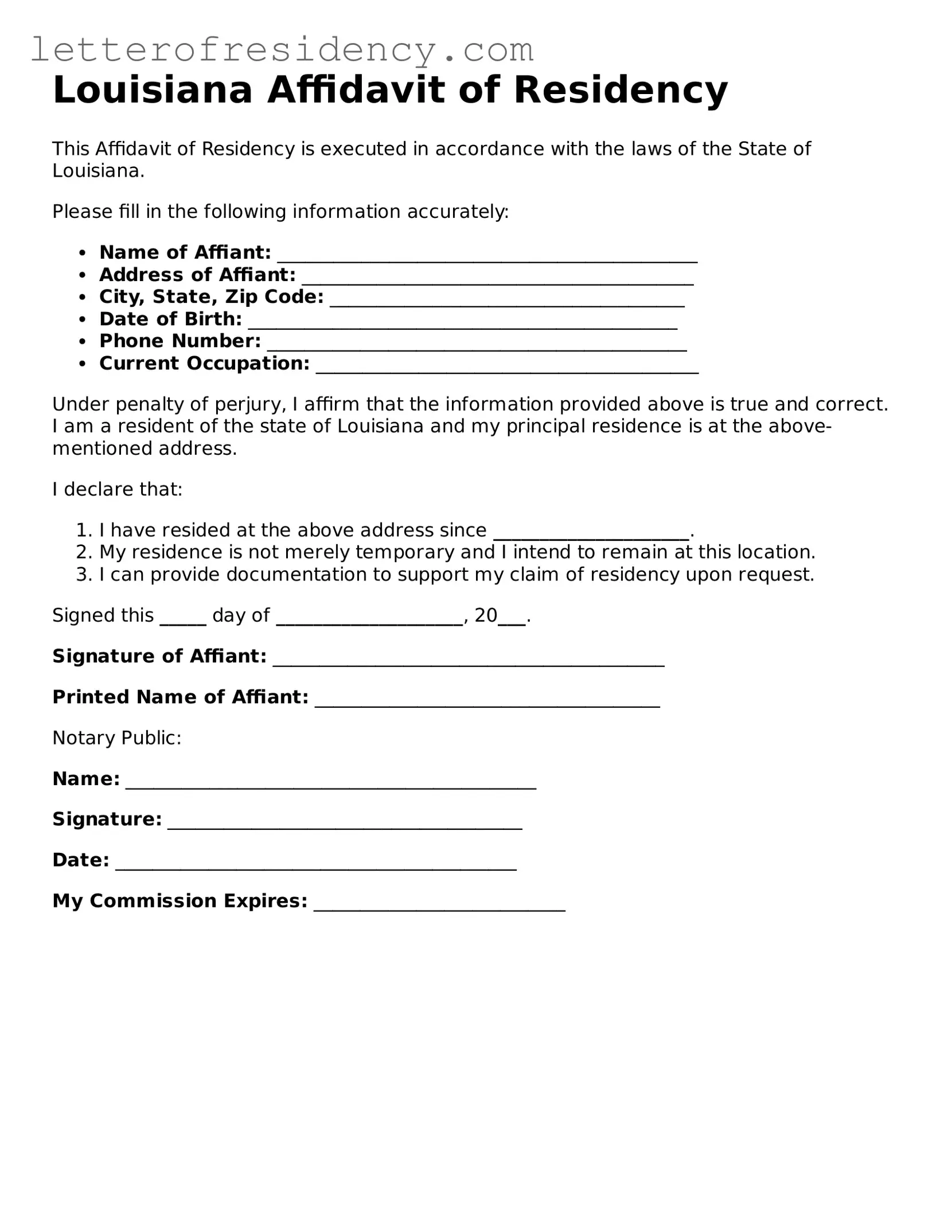What You Should Know About This Form
-
What is the Louisiana Affidavit of Residency form?
The Louisiana Affidavit of Residency is a legal document that serves to verify an individual's residence within the state of Louisiana. This form is often required for various purposes, such as enrolling children in school, obtaining a driver's license, or registering to vote. By completing this affidavit, individuals affirm that they reside at a specific address and provide necessary identification to support their claim.
-
Who needs to complete this form?
Typically, anyone who needs to prove their residency in Louisiana may need to complete the Affidavit of Residency form. This includes parents or guardians enrolling their children in public schools, individuals applying for state benefits, or those seeking to register to vote. It is important for these individuals to provide accurate information to ensure compliance with state regulations.
-
What information is required on the form?
The Affidavit of Residency form generally requires several key pieces of information. This includes the individual's full name, current address, and the duration of residency at that address. Additionally, individuals may need to provide identification details, such as a driver's license number or social security number, to verify their identity. It's essential to fill out the form completely and accurately to avoid any delays or issues.
-
How do I submit the Affidavit of Residency?
Submission methods for the Affidavit of Residency can vary depending on the specific requirement. In many cases, individuals may need to submit the form in person at a designated office, such as a school or local government agency. Alternatively, some organizations may allow for electronic submission. Always check with the requesting agency for their preferred submission method to ensure compliance.
-
Is there a fee associated with this form?
Generally, there is no fee for completing the Louisiana Affidavit of Residency form itself. However, depending on the context in which it is used, there may be associated costs. For instance, obtaining certain forms of identification or submitting the affidavit to specific agencies might incur fees. It is advisable to inquire about any potential costs beforehand to avoid surprises.
-
What should I do if my residency changes?
If your residency changes, it is crucial to update your Affidavit of Residency as soon as possible. Failing to do so may lead to complications, especially if you are enrolled in a school or receiving benefits based on your previous address. Complete a new affidavit with your updated information and submit it to the relevant agency to ensure that your records remain accurate.
